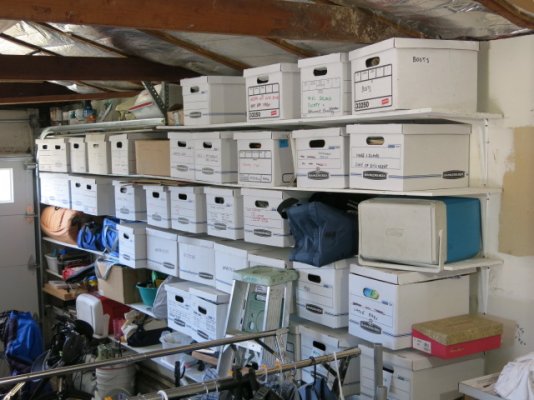I do not scan records that are paper. There is just little payoff. Most will be thrown away within days or weeks.
There's the difference. I use scanned in stuff almost every day.
As I mentioned in an earlier post, I quite often look back at a receipt to find when I bought something or where I bought it what I paid, etc.
I was working on budgeting the other day and I was trying to see what we were spending money on at the grocery store. I could, of course, just go by memory. But, instead, I searched for the prior 3 months grocery receipts and just did a quick spreadsheet categorizing what we spent on various categories such as fruit, soft drinks, cereal, frozen meals, etc. Was this a necessary task? Perhaps not. But, because I had the receipts it was easy to do.
Or, I might go back and look at old medical test results. I have lab results from the past and it has been helpful to go back at times and look at how something has changed over time.
Basically because I now have this data and use it regularly for things large and small it seems antiquated to me that I didn't use to have it. Now that I have it, I use it on an almost daily basis in one way or another.
A relative recently said he had to order a copy of his tax return from IRS because he could not "put his hands on" his most recent return. Absent a natural disaster, how does this happen?
Well. I just went online and got a tax transcript for my last year's return. I routinely make a PDF of my return when I do it (I use tax software) and I typically save it to two places: a folder for my tax software documents that I keep on my data drive. I keep this on a separate drive from my C drive where I keep programs. I then make a copy which I keep with my archived documents. I keep tax returns locally though and don't upload them to Evernote.
Anyway - several aspects of human error occurred.
When I installed my tax software last year I failed to change where docs would save to. As a result my tax return files and PDF were saved to my C drive.
I forgot to make a copy for my archived documents.
I decided to replace my C drive with a larger SSD drive. Before doing that, I went in and made copies of anything on that drive I needed. However, I did not realize that my only copy of my tax return and my tax software files were on the C drive. I thought they were on my data drive.
I didn't realize this until I needed to make a copy of my tax return and I couldn't find it. I then realized the above had to be what happened. FWIW, I was able to quickly download a copy of a tax transcript which gave me all the info I needed. I do still have the old C drive and theoretically I could probably make it into an external drive and could get the tax return but it is the only thing on that drive I would want so it isn't really worth it.

